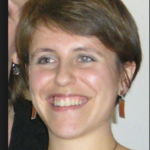Lien vers Pubmed [PMID] – 26370145
Mol. Psychiatry 2016 Apr;21(4):491-9
Impulsivity is an endophenotype of vulnerability for compulsive behaviors. However, the neural mechanisms whereby impulsivity facilitates the development of compulsive disorders, such as addiction or obsessive compulsive disorder, remain unknown. We first investigated, in rats, anatomical and functional correlates of impulsivity in the anterior insular (AI) cortex by measuring both the thickness of, and cellular plasticity markers in, the AI with magnetic resonance imaging and in situ hybridization of the immediate early gene zif268, respectively. We then investigated the influence of bilateral AI cortex lesions on the high impulsivity trait, as measured in the five-choice serial reaction time task (5-CSRTT), and the associated propensity to develop compulsivity as measured by high drinking levels in a schedule-induced polydipsia procedure (SIP). We demonstrate that the AI cortex causally contributes to individual vulnerability to impulsive-compulsive behavior in rats. Motor impulsivity, as measured by premature responses in the 5-CSRTT, was shown to correlate with the thinness of the anterior region of the insular cortex, in which highly impulsive (HI) rats expressed lower zif268 mRNA levels. Lesions of AI reduced impulsive behavior in HI rats, which were also highly susceptible to develop compulsive behavior as measured in a SIP procedure. AI lesions also attenuated both the development and the expression of SIP. This study thus identifies the AI as a novel neural substrate of maladaptive impulse control mechanisms that may facilitate the development of compulsive disorders.

